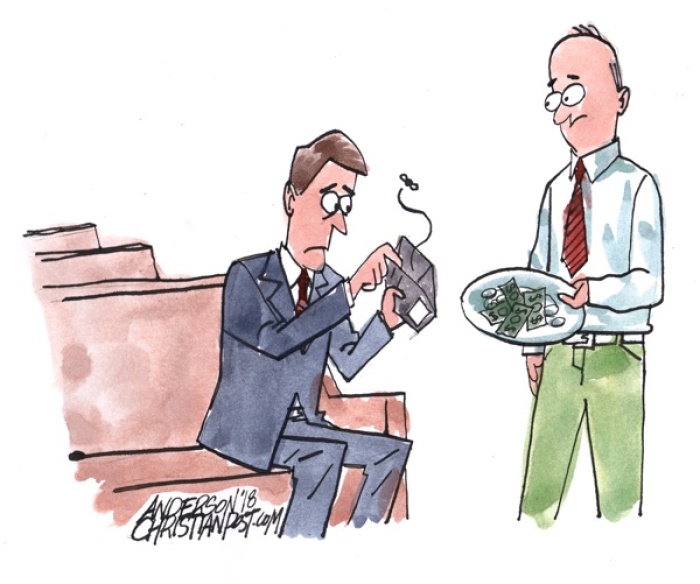4 key safeguards to make sure your church’s finances stand up under scrutiny

Money is one of the most sensitive subjects in the church. It’s also one of the most visible.
Many churches publish two sets of numbers weekly: worship attendance and giving. There it is, front and center — how many attended and the collective amount they gave. Despite the visibility, churches can struggle with the right amount of financial oversight.
There are horror stories, for sure. The unassuming secretary who stole six figures over ten years. The usher who swiped cash every week out of the plate. The lead pastor who abused church credit cards. These situations occur. What’s often missed, however, are the more subtle misuses of church finances.
Major spending outside of the budget. Every year our church approves a budget. The approval is not just for an overall amount but also categories of ministry—children, students, worship, missions, etc. Most churches work this way. When an unbudgeted and major expense arises, there should be an approval process. Abuses occur when there is no process. I know a pastor who once spent $65,000 on a plan to feed every person in the town a thanksgiving meal. The money was not budgeted, and he went ahead with the plan without asking anyone.
Using part of the budget for unintended purposes. You should not use the copier maintenance line item in the budget to fund a shortfall for the student ski trip. Designated accounts are commonly abused as well and can only be used for their intended purpose. These kinds of accounting flaws occur far too often in churches.
Hiding personal expenses. If your church approves an amount for travel to a conference, then it’s unethical to use those funds for an extended vacation with your family. The same applies for a hospitality budget. You should not use church funds to pay for family members at a restaurant.
Financial disasters tend to start small and grow over time. For example, a pastor has a financial crisis and begins to embezzle just enough funds to make ends meet. Two years later, the sin grows into stealing large sums for luxury items. Churches must be proactive to be above reproach with finances. Four key safeguards will help your church stand up under scrutiny.
- Consistent process. Weak areas are exploited, and loopholes form when a church does not stick to a financial plan. Counting the weekly offering, inputting data, bookkeeping, preparing financial records—all these areas should have consistency and consequences for those who vary from the process.
- Multiple checks by multiple people. At our church, we always require two signatures on checks: One from our financial director (staff) and another from our treasurer (volunteer). Our stewardship committee (overseeing finances and facilities) has full audit permissions over both the financial director and treasurer. We also have a separate team that counts offerings, and they are double-checked by deacons. No process is perfect. But you never want to be in a situation where one person can do something on their own. With money, two people need to work together at every stage of the process, and then someone else needs the ability to double-check their work.
- Transparent reporting. If you have nothing to hide, then don’t act like it. Church members become frustrated when they feel like leaders are keeping them in the dark. Frustrated members are not often generous. Be clear with your finances and it will clear the path to generosity.
- Leadership accountability. When individual pastors are above reproach, the culture of accountability filters down into the congregation. Conversely, pastors who eschew personal financial accountability will create a loose church culture of oversight. Accountability begins at the top. Pastors are to lead spiritually. This leadership includes being above reproach financially.
Many years ago, I remember reading an article in our local paper about a pastor who was day trading using church finances. The church lost a significant amount of money. At the time I thought how does this happen? Now I understand. Most churches tend to trust pastors.
Every week, tithes and offerings are given with the expectation of funding ministry. Establishing a system of accountability is not a detriment to ministry but rather a conduit of generosity. Financial policies and procedures create a pathway towards being above reproach. Financial missteps — or even worse, financial scandals — can set a church back several years. When accountability is in place, more ministry is gained over the long haul and God is glorified.
Originally published at Church Answers
As President of Church Answers, Sam Rainer wears many hats. From podcast co-host to full-time Pastor at West Bradenton Baptist Church, Sam’s heart for ministry and revitalization are evident in all he does.




























